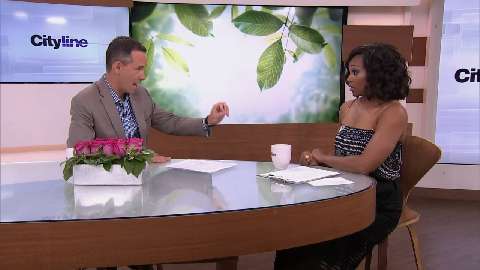Insurance can be a tricky thing – especially when it comes to considering what do you and don’t need. Finance expert Bruce Sellery breaks down the must-knows.
How do you figure out what you need and what you don’t?
In my view, the role of insurance is to protect you from calamity: Death, disability, fire. It is really worth paying for that coverage because of:
- The financial risk
- The peace of mind
Insurance isn’t a financial windfall. That’s the movies when you buy a big life insurance policy and then your husband suddenly disappears. It is not worth spending the money to protect yourself against a minor problem, because the financial risk is low, and it shouldn’t keep you up at night. Like breaking a watch. I was buying an expensive watch online. It was $40. The insurance was $7, almost 20% of the cost. It makes no sense to buy that.
So, consider your circumstances: Your age, your dependents, your income, and your temperament.
What you should have on your “must have” insurance list?
- Basic “term life insurance”: This is the equivalent of a seatbelt in a car. No excuses. If you have any dependents, you need at least basic coverage in the event of your death. How much coverage depends on what they would need to cover your lost income. That amount will change over time. When you have young kids, there are decades of expenses ahead – the mortgage, education. But if you’re an empty nester and your house is paid off, you won’t need as much coverage.
- Home insurance: Most lenders require it to get a mortgage, but you should have it even if you’re mortgage free. This is one to understand because the policies can be very, very different.
- Tenant insurance: If you rent, get tenant insurance. It is cheap and protects the contents of your rental.
- Car insurance: You need it. No choice.
What’s on the “maybe” list?
- Disability insurance: I only say “maybe” because some people already have it through an employer. If you don’t have coverage, you need it. And it isn’t cheap.
- Permanent life insurance: This is insurance that has an investment component to it. It sounds great on paper, but I like the flexibility of term life to protect against calamity, and the investing to support your retirement.
- Travel insurance: Travel was that thing we did in the ‘before times’ when we left our house. When we travel again, check to see what coverage you have through work, or a credit card to see if you need more.
What’s on the “don’t need” list?
- Mortgage life insurance: It is designed to pay off your mortgage if you die. But I would use term life insurance to do that instead. Because…
-
- 1) It is simpler to just have the one, and you’ll receive a
- 2) Fixed lump sum, instead of whatever is outstanding on the mortgage, which will decline over time.
- Plus, your heirs can 3) choose what debt should be paid off first – maybe it isn’t the mortgage.
- Credit card balance insurance: The financial consumer agency calls it “expensive”. Instead, make sure you have term life and disability insurance and focus on saving an emergency fund so that you have the money to pay off your credit card in full.
What about those extended warranties they try to sell you in-store?
Generally speaking, no. Don’t buy it. It might make you feel better, but it isn’t a great financial move. I read a whole bunch of research and articles on Consumer Reports. Here are the cons:
-
- People rarely use them,
- They can be really restrictive, and
- They are expensive. The average extended warranty on a car is $1800




